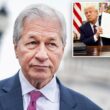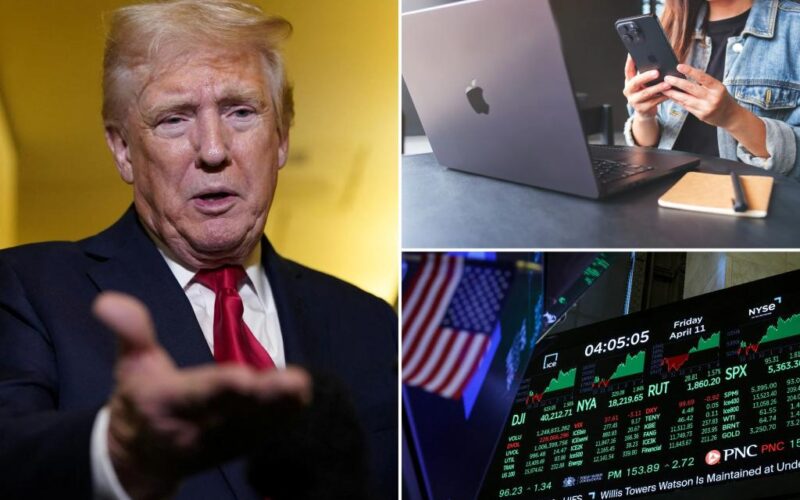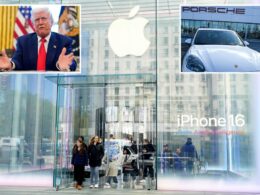Tech stocks surged Monday after the Trump administration exempted key electronics such as smartphones, laptops and chips from a new wave of tariffs on Chinese goods — offering a reprieve to a sector that had been reeling from rising trade tensions and mounting supply chain uncertainty.
Apple shares led the rebound, climbing 5.3% at the start of Monday’s trading session as investors welcomed the decision to shield many tech products from tariffs that had threatened to dramatically raise consumer prices.
The stock had slumped more than 9% over the past two weeks amid fears that the iPhone — largely manufactured in China — would face significant price hikes under a proposed tariff rate of up to 145%.
The tech-heavy Nasdaq jumped 1.3%, or 215 points. Meanwhile, the S&P 500 advanced 1%, or nearly 60 points.
The Dow Jones Industrial Average rose by 500 points after the opening bell and was up by more than 300, or around 1%, as of 9:40 a.m. Eastern Time.
The late-Friday announcement by the White House exempted 20 categories of tech goods from the sweeping import levies unveiled earlier this month.
The move fueled a global rally in tech stocks, with major hardware makers and semiconductor companies leading the gains.
Dell and HP jumped 6% and 4%, respectively, while chipmaker Nvidia added 0.8% in early trading.
Semiconductor stocks across Europe and Asia also rallied, with Infineon, ASM International, and Foxconn among the top performers.
“The removal of the worst-case scenario is an element of support (at least temporarily) for the sector,” Alberto Gegra, an analyst at Equita, told Reuters.
He added that the exemptions help stave off a total supply blockade that might have arisen if tariffs on Chinese-made electronics had remained in place.
The market reaction suggests investors believe the administration is showing greater awareness of the potential fallout from its trade policies — particularly on inflation-fatigued consumers who rely on smartphones, laptops, and other electronics.
The tariffs had prompted fears of a supply-chain disruption rivaling that seen during the COVID-19 pandemic, as well as higher input costs for tech firms.
“The net effect is positive for tech, especially for giants like Apple, which could’ve seen their entire pricing strategy thrown into disarray under the proposed 145% China tariffs,” Matt Britzman, senior equity analyst at Hargreaves Lansdown, told Reuters.
“Instead, this reprieve, and news that further tariffs will be a couple of months away, gives Apple time to build up its US inventory to cover the current iPhone sales cycle without needing knee-jerk price hikes.”
Still, the relief may prove temporary.
Commerce Secretary Howard Lutnick cautioned on Sunday that the administration is planning new levies targeting semiconductors and tech components under a separate Section 232 national security investigation.
“We expect some new measures in the coming months,” he said.
President Trump reinforced the message with a social media post warning that “NOBODY is getting ‘off the hook’ on tariffs,” stating that while exemptions may apply under one framework, “they’ll be covered under another.”
The uncertainty hasn’t prevented a short-term surge in investor confidence.
Asian suppliers closely tied to US tech firms also posted gains: Foxconn rose as much as 7.8% before settling up 3%, Quanta advanced 5.8% and Inventec gained 4.1%.
But broader economic concerns remain.
A Wall Street Journal survey conducted in the wake of Trump’s April 2 tariff announcement found that economists now peg the chance of a U.S. recession at 45% — nearly double the rate from January.
Meanwhile, hedge fund manager Ray Dalio noted the economy is “flirting with contraction.”
For now, tech stocks are enjoying a rare moment of calm.
But with further tariffs looming, the industry’s long-term trajectory remains deeply uncertain.








